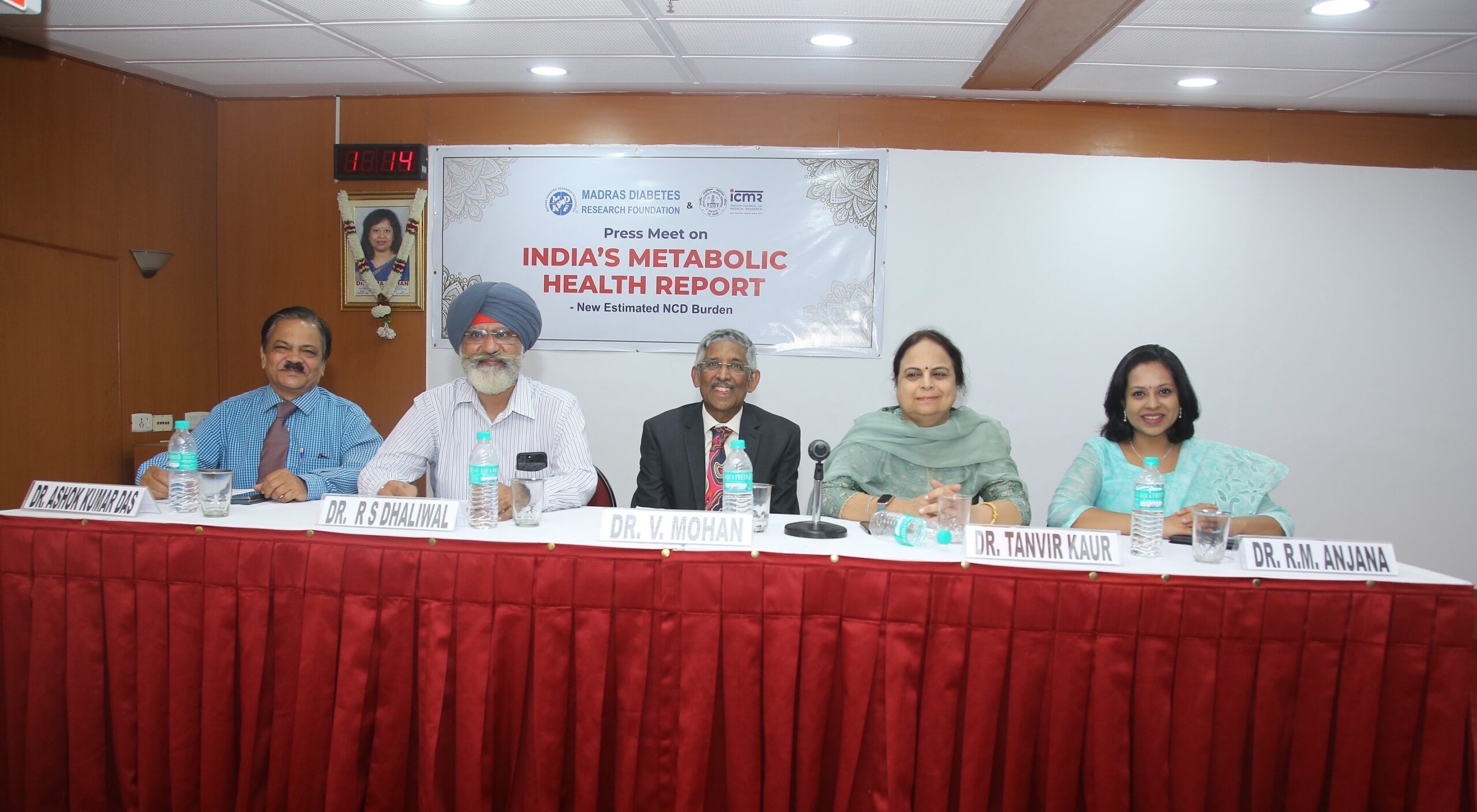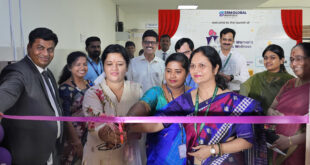A ground-breaking research paper of a comprehensive epidemiological study funded by ICMR has been published in the globally acclaimed medical journal, The LancetDiabetes and Endocrinology. Funded by the Indian Council of Medical Research and Ministry of Health and Family Welfare. Govt. of India, the study paper – Indian Council of Medical Research–India Diabetes (ICMR-INDIAB) shockingly reveals India has a much higher burden of metabolic non-communicable diseases (NCDs) This cross-sectional, population-based survey of adults aged ≥20 years, sampled a total of 1,13,043 individuals (33,537 urban and 79,506 rural residents) in 31 States and Union Territories of the country using a stratified, multistage sampling design. In this large representative sample of individuals from both urban and rural India, the study measured the prevalence of metabolic NCDs such as diabetes, hypertension, obesity, and dyslipidaemia. It also identified regional and state-level variations in the prevalence of these NCDs across the nation.
ICMR-INDIAB study findings
| Non-communicable diseases (NCDs) | National prevalence | Estimated number of people in India, in millions (Burden) | State with highest prevalence | State with lowest prevalence |
| Diabetes | 11.4% | 101 | Goa (26.4%) | Uttar Pradesh (4.8%) |
| Prediabetes | 15.3% | 136 | Sikkim (31.3%) | Mizoram (6.8%) |
| Hypertension | 35.5% | 315 | Punjab (51.8%) | Meghalaya (24.3%) |
| Generalized Obesity | 28.6% | 254 | Puducherry (53.3%) | Jharkhand (11.6%) |
| Abdominal Obesity | 39.5% | 351 | Puducherry (61.2%) | Jharkhand (18.4%) |
| Hypercholesterolemia | 24.0% | 213 | Kerala (50.3%) | Jharkhand (4.6%) |
Urban vs rural difference: Urban regions had higher rates of all metabolic NCDs than rural areas, with the exception of prediabetes.
New National estimates for diabetes and other NCD’s: Our study estimates that in 2021, in India there are 101 million people with diabetes and 136 million people with prediabetes, 315 million people had high blood pressure, 254 million had generalized obesity, and 351 million had abdominal obesity. Additionally, 213 million people had hypercholesterolaemia.
Dr.R.M.Anjana, Managing Director, Dr.Mohan’s Diabetes Specialities Centre (DMDSC) and President, Madras Diabetes Research Foundation (MDRF) commented “We at MDRF are more than proud to be spearheading this herculean task as the national coordinating centre for the study with generous support from ICMR and Ministry of Health, Government of India. The in-depth report is likely to have a huge impact on the healthcare policies for the country specific to NCDs. The findings of this study are very significant as they provide robust estimates of NCDs for the nation. Compared to earlier estimates, India currently has a substantially greater prevalence of metabolic NCDs. In India, the diabetes epidemic is in transition, with some states having already reached their peak rates while others are just getting started. The study also demonstrates that despite the fact that all metabolic NCDs are more common in urban regions, rural areas have significantly greater prevalence rates than that reported previously “
”
Dr.V.Mohan, Chairman, Dr.Mohan’s Diabetes Specialities Centre (DMDSC) and Madras Diabetes Research Foundation (MDRF) and senior author of the study added “With dedicated and commendable efforts by the members of MDRF, we have successfully been able to assess the rise in NCDs like obesity, Hypertension and Diabetes which definitely affects millions across the globe. Our study results have multiple implications for the planning and provision of health care in India. State governments in India, who are primarily in charge of providing healthcare in their respective regions, will be especially interested in the detailed state-level data on these NCDs as it will allow them to develop evidence-based interventions to successfully halt the progression of NCDs and manage their complications.”
Dr.R.S.Dhaliwal, Scientist ‘G’ & Head, Non-communicable Disease Division, Indian Council of Medical Research (ICMR) and Dr.Tanvir Kaur, Scientist ‘G’, NCD Division, ICMR expressed their delight and honour to have been part of this ICMR – INDIAB study which involved an extensive amount of time, effort and research in coming up with research breakthrough. Dr.R.S.Dhaliwal, Scientist ‘G’ & Head, Non-communicable Disease Division, Indian Council of Medical Research states “It is quite evident from the study results that India has a substantial population at risk of cardiovascular disease and other long-term organ complications due to metabolic NCDs. “
Being the national coordinating centre for this study, MDRF was involved in this detailed task of planning and executing the project successfully. Covering all 28 states, two union territories, and the national capital region of Delhi, the survey was executed an extensive sample size of 1,13,043 individuals. The results of the study are published in the prestigious and globally renowned medical journal The Lancet Diabetes and Endocrinology.
Please note that this article is embargoed until 23:30 hrs UK time on 7th June 2023.
The post embargo link is given below to access the article.
 Expressnews
Expressnews









